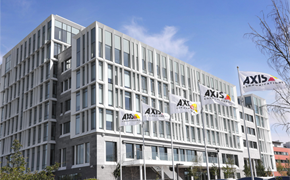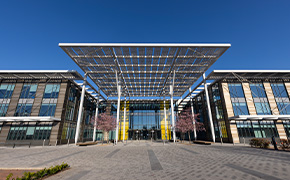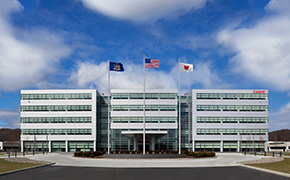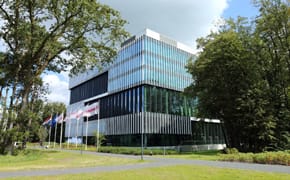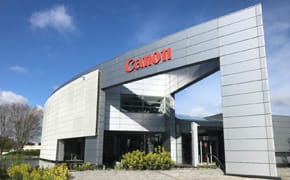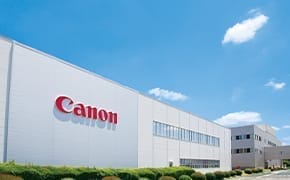Journey
Canon Europe’s Intellectual Property Division
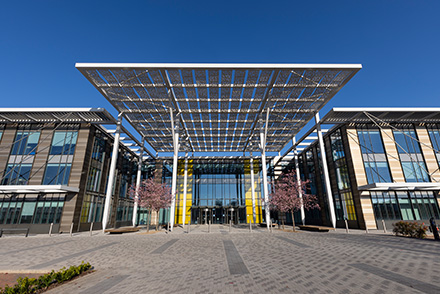
Canon Europe Ltd. (CEL) is the Regional Sales Headquarters for Canon in Europe, the Middle East, and Africa (EMEA), located in London. The Intellectual Property Department based in CEL plays a pivotal role in supporting and protecting Canon’s intellectual property (IP) assets across the diverse and complex EMEA region. The IP Department comprises of IP professionals from Europe as well as expatriates from Canon Inc. in Japan and has various intellectual property functions such as patents, contracts, brand management, and anti-counterfeiting measures. The IP Department works on patent prosecution based on a tight cooperation between attorneys and expats in Canon Europe and patent engineers in Canon Inc. across a wide variety of technology areas. The department has particular expertise in patent prosecution of Standard-Essential Patents (SEPs) and plays a central role for SEP prosecution in Canon Group.
In this article, the IP Department explains their work in the areas of contract support, marketing and brand management support, anti-counterfeiting measures and IP policy development.
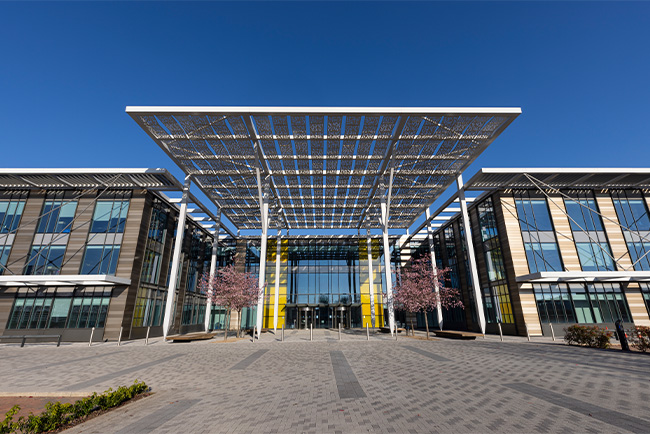
Contract Support
The department provides comprehensive contract support across EMEA, drafting, reviewing, and negotiating a broad array of agreements to ensure that Canon’s IP rights and brand integrity are safeguarded. These agreements cover areas such as marketing, IT, and non-disclosure arrangements. We work in close collaboration with CEL’s commercial legal teams, national sales organizations, and the Global Contracts team to support commercial transactions and ensure that IP-related risks are effectively managed. We contribute to enhancing IP literacy by offering IP insights and training to colleagues across the region. A key part of the department’s role involves ensuring that contracts with customers and suppliers are structured to protect Canon’s IP rights and minimizing the risk of infringing on others’ intellectual property. In addition, the IP department facilitates the licensing and acquisition of software development tools to developers of print and information management solutions, including internal IT teams within customer organizations. This enables Canon’s software products to operate seamlessly across a wide variety of IT environments in EMEA, helping Canon and its partners meet the evolving needs of business and enterprise customers.
Marketing and Brand Management Support
We also play a central role in supporting Canon’s marketing and brand functions across EMEA. Given the region’s vast geographical and cultural diversity, the work is dynamic and engaging, involving collaboration with stakeholders in dozens of countries as well as spanning a wide range of legal systems, business cultures, and regulatory environments.
We assist in the creation, management, and use of high-quality marketing content that resonates with diverse audiences while respecting third-party rights. We guide Canon group companies to manage their global trademark portfolios in line with Canon’s policies and best practices, with a view to protecting key local brand assets. In order to maintain and further improve the brand’s strength in the EMEA region, which is made up of various countries and regions with different cultures and values, the department, as a member of the Canon EMEA Brand Management Committee, evaluates and provides advice regarding marketing proposals from group companies throughout the EMEA region. This includes supporting the development of partnerships and sponsorships with creators, businesses (eg: companies in other industries who are willing to support the promotion of Canon’s products and brand), events, and charitable organizations from various backgrounds. For example, when creating marketing campaigns using well-known characters from movie franchises, we provide advice and proposals to secure usage rights. Through collaborations with these organizations, we aim to expand awareness of Canon’s products to new audiences within EMEA markets. Throughout these efforts, they remain focused on protecting the reputation, integrity, and heritage of Canon’s globally recognized brand in the diverse EMEA region.
Anti-Counterfeit
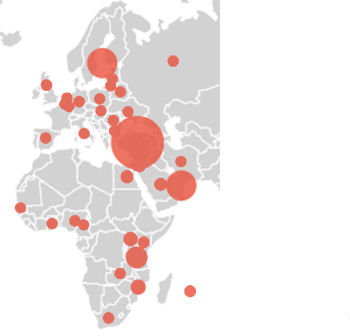
The department also works to develop anti-counterfeit and enforcement strategies in the EMEA region. In the area of enforcement, we lead Canon Europe’s anti-counterfeit and IP protection efforts across more than 70 countries in the EMEA region. Given the vast geographical scope, the enforcement strategies are tailored to the specific legal and operational characteristics of each country and region. Figure 1 shows the regions where counterfeit products were seized, with the size of the circles illustrating the quantity of the seizure. We work closely with business colleagues in Regional Sales HQs within the EMEA region such as Canon Middle East (CME) and Canon Central & North Africa (CCNA) to gather intelligence on possible suspicious activities in the market.
We maintain a close collaboration with police, customs authorities, and anti-counterfeit organizations (such as ICCE, explained later) to combat the illegal trade in counterfeit Canon-branded products. Any intelligence on infringing activity which may be identified is passed over to specialist third party investigation contractors on the ground who will carry out further surveillance to identify possible targets against which enforcement and raid action could be carried out. Over the past five years, these efforts have led to the seizure of more than two million counterfeit items and numerous arrests, prosecutions, and convictions. These outcomes were achieved through the strength of the partnerships established with vigilant enforcement authorities and their ongoing commitment to protecting customers and preserving Canon’s brand value.
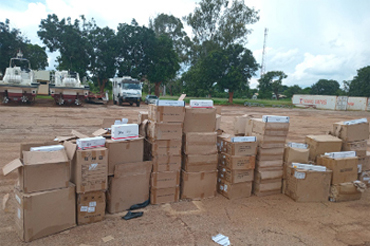
IP Policy Development
The department actively engages with European and Japanese trade and industry organizations to influence the development of new laws and regulations in Europe. Recently, we made advocacy efforts regarding the European Union’s Digital Services Act, providing recommendations to reduce the availability of counterfeit goods on online platforms, and the EU Data Act, providing proposals to protect IP and trade secrets in the context of mandatory data sharing. Collaborations include work with institutions such as the Imaging Consumables Coalition of Europe, Middle East and Africa (ICCE), the European Commission, Information Technology Industry Council (ITI), Digital Europe (DE), Japan External Trade Organization (JETRO), International Intellectual Property Protection Forum(IIPPF), IP Federation and Japan Business Council in Europe (JBCE). ICCE was formed in 1997 as a direct response to the increase in counterfeit imaging consumables across EMEA region and we have been actively collaborating with this non-profit making association almost since the beginning. With a focus on education, lobbying and information exchange, ICCE is made up of likeminded brands who will also work closely together to initiate joint industry raids, enforcement activities and criminal actions through the courts.
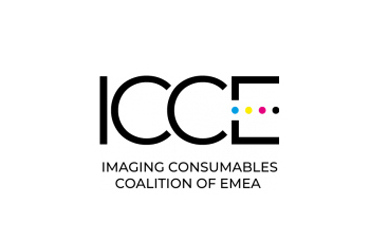
(As of July, 2025)

